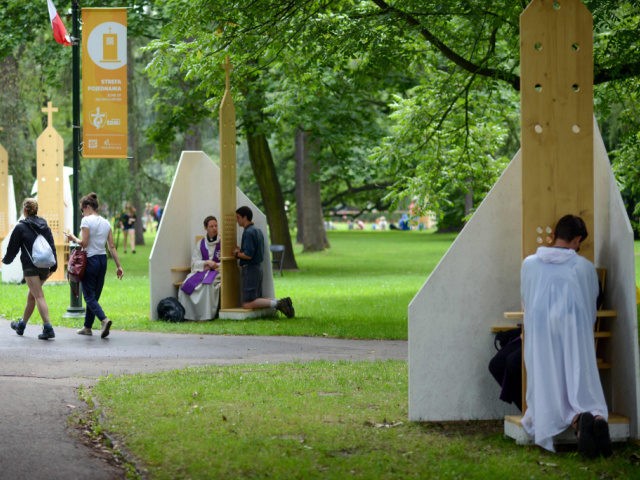A new Irish statutory instrument aimed at curbing the spread of the coronavirus makes meeting with a priest outdoors for the sacrament of confession a crime, according to a law professor at Trinity College Dublin.
If a priest “were to meet a parishioner for outdoor confession, they would both be committing a criminal offence,” Professor Oran Doyle wrote this week on a site publishing academic commentary about Ireland’s legal response to the coronavirus, “whereas, if two people were to meet for a chat or to exercise, they would not be committing a criminal offence.”
Most types of events “were already banned, but religious events weren’t and they seem to be the most obvious thing that is caught by this change of the law that was made last week,” Doyle said in relation to SI 171/2021, which applies to both indoor and outdoor events.
The instrument inserted Regulation 10A, which bans events not included in a series of exceptions and restricts the actions of “a minister of religion or priest (or any equivalent thereof in any religion)” to “lead worship or services remotely through the use of information and communications technology” or “minister to the sick.”
“The differential criminalization of facially similar religious and non-religious activities probably makes regulation 10A more vulnerable to legal challenge,” Doyle noted.
Doyle wrote that “it is difficult to see that Regulation 10A accomplishes anything other than impose a criminal prohibition on religious services.”
Prohibiting religious events through regulation 10A “has resulted in the important difference that religious events are prohibited outdoors, while relevant events are now permitted outdoors so long as they only involve people from no more than two different households,” he said.
“Regulation 10A appears designed with the sole purpose of criminalizing religious services,” he wrote, “while concealing that sole purpose through a bizarrely and unnecessarily convoluted scheme of legislative cross-references.”
Members of the hierarchy of the Catholic Church in Ireland have already criticized the new instrument, which prohibits all religious services except weddings and funerals while instructing clergy to conduct virtual services in lieu of in-person worship.
The archbishop of Armagh, Eamon Martin, condemned the regulations this week, calling them “draconian,” “provocative,” and “unnecessary.”
“We consider the publication of this statutory instrument, together with associated penal provisions, to be provocative and formally enacting a potential infringement of religious freedom and of constitutional rights, Archbishop Martin, the primate of all Ireland said.
The archbishop noted the instrument was introduced in a “clandestine manner without notice or consultation,” adding that the Irish bishops were not made aware of the law until last Friday, despite its having been signed on Monday of last week by Health Minister Stephen Donnelly.
We have “consistently impressed on government that people of faith value highly their spiritual well-being and consider the public practice of their faith as essential — something which has not been sufficiently recognised in statute,” Martin said.
Even prior to the latest regulation, Ireland has distinguished itself for the harshest suppression of religious practice in all Europe, with months of lockdown and no Masses in the formerly Christian nation.
Bishop Denis Brennan of Ferns has attributed the severe restrictions to an “unwillingness or inability in Ireland to appreciate the value of religion or spirituality” during the pandemic.
“I share the pain of many in Ireland at present as public worship is still not permitted,” the bishop said on April 4.
In a similar statement, Bishop Alphonsus Cullinan of Waterford and Lismore protested the government’s discrimination against people of faith, saying on March 31 that the spiritual well-being of the Irish was being “eroded” because of ongoing bans on worship.
“I must speak out to represent the voices of a very large cohort of people who are growing increasingly weary of being unable to attend Mass and whose spiritual and mental wellbeing is being eroded,” the bishop said. “Their patience is wearing thin. They are frustrated and feel unrepresented and discriminated against.”

COMMENTS
Please let us know if you're having issues with commenting.